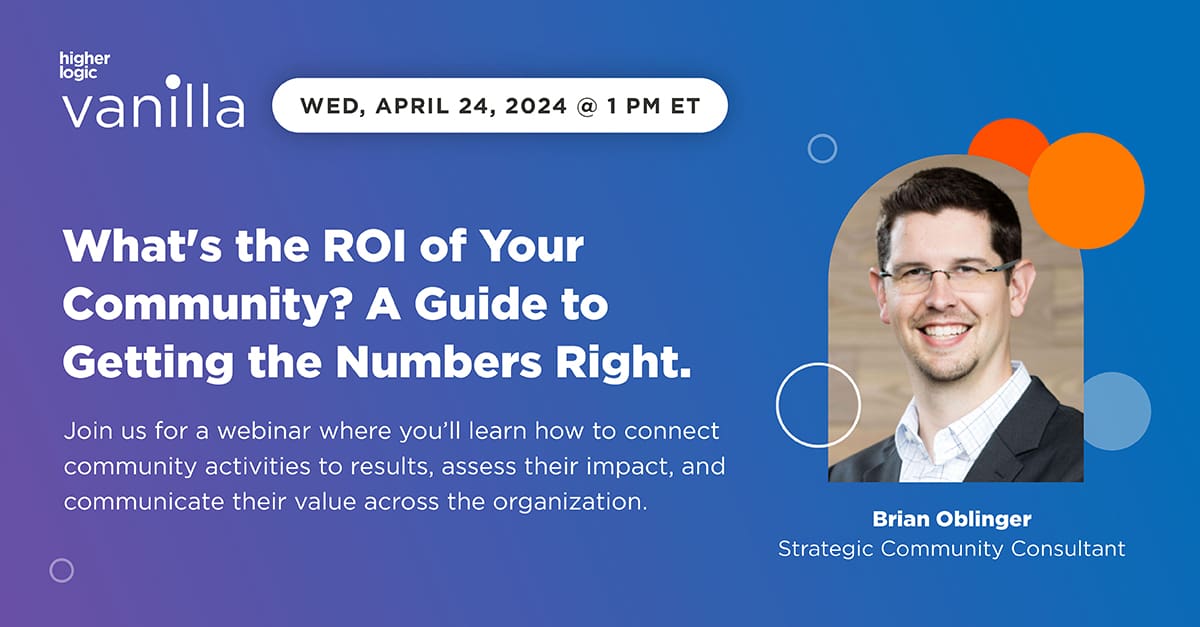
What is the Difference Between an Open Online Community vs. a Private Online Community?
Different communities can serve different business goals. Learn the three types of online communities to consider.
To open or not to open an online community? This is not the only question. Once you’ve decided to build an online community you’re going to need more than just software. You need to clearly understand your business goals and target audience’s problems to find the appropriate solution.
There are three type of online communities to consider open, private, and what we like to call the hybrid. Simply put:
Open Online Community
- Anyone with access to the internet (this includes industry competitors) can view all discussion forums and information in the online community
- Users only provide login credentials when wishing to contribute to the community
- Anyone can join the community
- Examples: Aerohive Communities, Cypress and Blue Jean
Private Online Community
- Information and conversations can only be accessed by users with log-ins (often sent via invitation to a specific group or pre-loaded into the community platform’s membership database).
- All users are forced to obtain and input login credentials to see content and conversations.
- Administrators have the ability to deny access to users who don’t fit membership credentials (i.e members, customers, participants in a specific industry)
- Examples: BlackBaud, New Holland and The SAS Center for Health Analytics and Insights (CHAI)
Hybrid Open/Private Online Community
A hybrid online community is simply a social space where some of the engagement opportunities are available to the public and others are accessible only by customers or members.
It is common for online customer communities to expose specific discussion focus to the public where they can attract attention and prospective customers by host conversations about general best practices and high-level industry topics. In the secure, private areas of the online community, the business can collaborate with existing customer and partners to provide detailed answers to support questions, co-create new products together, and be more transparent about company news.
Selecting the right type of community means mapping a business strategy and clearly outlining goals for your ideal online community. Research online communities that you like and document why you like them. We’ve collected some examples that may help get you started here.
- What experience are you looking to provide to your users?
- Are you seeking an ongoing collaboration with users that involves file sharing and robust user profiles?
- Are you seeking to build brand awareness by increasing SEO rankings?
The answers to these questions should guide your decision between an open, hybrid, or private online community.
How Open Should Your Online Community Be?
As with any decision, there are a myriad of unique advantages to all three options. Both open and private online communities can all lower support cost, convert prospects into customers, and provide rich analytic information about participants. The best online community option for your organization depends on your target audience, goals, and strategy.
Open Online Communities
Open Communities are great for improving SEO rankings. These type of communities typically take a Q&A model that search engines love!
B2C companies are often drawn to this community model. Since consumer companies don’t usually have deep, ongoing relationships with their customers, like B2B companies do, B2C companies are less concerned about the information in the community and customer discussions being seen by the public.
Additionally, because these models are built for maximum viewership, they are typically social-login ready and certain platforms allow that type of third party data to be heavily tracked. The goal of these communities is to provide customers easy access to information and their peers, while building awareness of their business or product.
Private Online Communities
Private Communities offer their own set of advantages. These communities typically see more repeat participation than their open counterparts. Users feel more protected and open to collaboration because their information is only accessed by credentialed users sharing their same interest or relationship with the sponsoring organization.
The greatest advantage to these types of communities is that they foster high engagement levels across users— they can share documents and videos, register for group calendar events, and discuss common experiences with their peers. This collaboration builds an interactive and lasting relationship between the brand and its users. Additionally, since membership is gated, businesses can offer access to the portal as a “perk of doing business together” or a “member benefit” thus increasing the value of the organization providing the online community.
What Types of Online Communities Does Higher Logic Offer?
To answer your question, Higher Logic offers all three types of online communities. Higher Logic has software that would allow organizations to build secure, collaborative, intuitive private online communities that fit individual organizations’ needs. The platform has a variety of features that are available to community members depending on the type of community and target audience.
Ultimately, all of the features you need to create an active open, hybrid, or private online community are in the Higher Logic community platform. Our software offers a range of features that are used differently on a customer to customer basis. Often, open and private communities are all pulling from the same library of features but have different uses.
Example: Discussions Forums
For example, let’s look at the forum feature that is popular for both types of communities. An open online community may use the forum feature to offer visitors discussions that is segmented by product. This makes it easier for site visitors to consume the information.
While a closed online community may use this same forum feature to open a discussion about retirement investments. This forum allows their users to connect with and build lasting relationships with users.
Example: Online Community Member Profiles
The feature to create custom profiles is another great example of different community types having different needs for the same thing. Open communities may want user profiles that are simple and easily created. Making them simpler increases the chance that users will create one, contribute and in turn fuel content for SEO rankings (more conversation = more food for search engines).
However, in a private customer or member community, where the goal is lasting engagement, they may use this feature to get insight about their community members or segment members for target communication. You’ll even see Socious customers create more robust profiles that pull in personal blogs, social media, or files fromthrid party social networks.
Taking time to map out community goals is the real beginning of the selection process. Your company’s goals should match the goals of your company. The question isn’t how you want to engage your customers or members but rather why. Is it to have them creating content that can be crawled by SEO or is it to build a stronger relationship that leads to additional revenue from a renewal or product upgrade? Know your goal when selecting the community that is right for your business.



